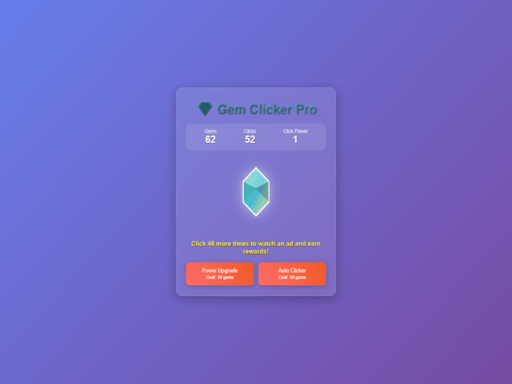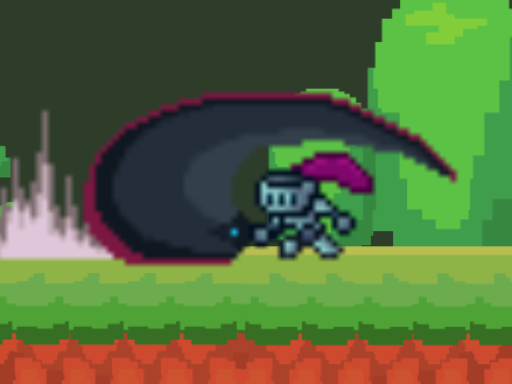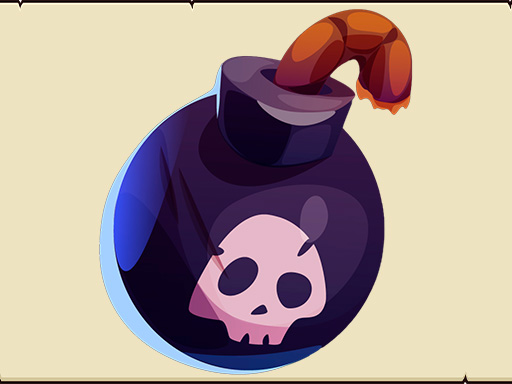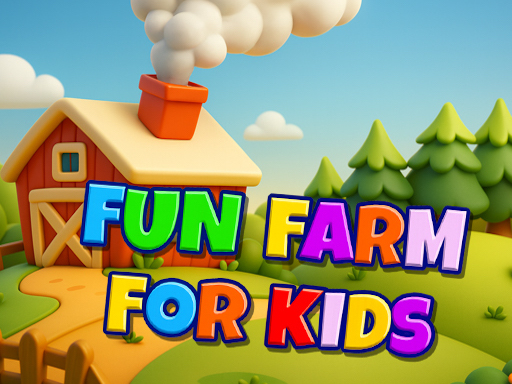Tapocalypse Idle Clicke
About Tapocalypse Idle Clicke
Dude, you are *not* going to believe what I just stumbled upon. Seriously, drop whatever you're doing right now, because I need to tell you about this game. It’s called *Tapocalypse Idle Clicker*, and I know, I know, "idle clicker," your eyes probably just glazed over, right? Mine too! For years, I’ve pretty much written off the genre as something you just leave running in the background while you do something else, a glorified progress bar that occasionally asks for a click. But *this*... this is different. This is something else entirely.
I’ve always been drawn to games that give you a sense of overarching responsibility, that put you in charge of something fragile and vital. Whether it’s building a sprawling city from scratch or guiding a tiny civilization through the ages, there’s something profoundly satisfying about watching your decisions ripple outwards and shape a world. And that’s exactly what Tapocalypse does, but it distills that feeling into this incredibly potent, addictive little package that completely redefines what an idle game can be.
Imagine this: the world's gone to hell. Zombies, obviously. It’s the apocalypse, what else would it be? But you're not some lone hero with a shotgun, blasting your way through hordes. No, you’re something far more profound, far more burdened. You're the *guardian*. You're responsible for the last flicker of hope, a tiny, struggling simulation village. You start with just a handful of survivors, huddled behind a makeshift wall that looks like it could collapse if a strong breeze hit it. And your job? To keep them alive. To keep them *human*.
What’s fascinating is how quickly you get emotionally invested. It’s not just about numbers ticking up; it’s about these little pixelated people, your villagers, who are constantly fighting for their lives. Every single morsel of food, every drop of clean water, every scrap of wood to reinforce their defenses – it all matters. You’re watching their vital signs like a hawk, not just their health, but their morale, their hunger, their thirst. It’s a constant balancing act, a desperate scramble to keep the plates spinning. You'll find yourself making split-second decisions: do I send a scavenging party out for food, risking a zombie encounter, or do I focus on farming what little we have, knowing it might not be enough? The tension is palpable, even in an idle game. You can almost feel the weight of their survival on your shoulders, the chill of the post-apocalyptic night air seeping through the gaps in their defenses.
The brilliant thing about this is how it integrates the "clicker" aspect. Those clicks aren't just numbers; they're the sweat and toil of your villagers, amplified by your will. When you click to gather resources, you're not just getting wood; you're *directing* them to chop down a tree, you're *motivating* them to dig for water. You're their unseen hand, guiding their desperate efforts. And as you gather more, you can invest in upgrades: a sturdier wall, a more efficient farm, a clinic to heal the sick. Every upgrade feels like a monumental victory, a small step back from the brink. You can almost hear the hammer blows, the rustle of newly planted crops, the sigh of relief as a sick villager recovers.
But here’s where Tapocalypse truly shines, where it transcends the genre and becomes something truly special: your villagers can make decisions themselves. This is where it gets *wild*. These little pixelated people, they're not just drones. They *think*. Or at least, the game simulates them thinking in a way that creates these incredible, emergent narratives. You’ll see messages pop up: "Farmer John went off-grid to find berries." Your heart will stop. Is he going to make it back? Is he going to bring back a bounty, or a bite mark? Or maybe, "Builder Sarah decided to reinforce the east wall on her own initiative." A wave of relief washes over you, because you were just about to do that, and now she’s taken care of it.
You get attached, honestly. You root for them. You feel their triumphs and their losses. There was one time, early in a run, when my food supplies were critically low. I had a choice: risk sending out my only two healthy foragers, or let everyone slowly starve. I sent them. And then a message popped up: "Forager Mike encountered a small horde. He fought bravely but was overwhelmed." My stomach clenched. I actually felt a pang of genuine sadness. Mike was gone. But then, a few minutes later, "Forager Emily returned, wounded, but with a surprising haul of canned goods!" It was this incredible rollercoaster of despair and hope, all driven by these tiny, autonomous decisions. This makes me wonder, how much of my success is truly my own strategy, and how much is the sheer luck or ingenuity of my virtual villagers? It’s a fascinating dynamic.
And then there are the zombies. Oh, the zombies. They're not just a background hum. They're a looming, gnawing threat that keeps you on edge. You’ll see the timer ticking down to the next horde, and your stomach will clench. Is the wall strong enough? Do I have enough defenders? Do I have enough medicine for the inevitable casualties? The attacks are visceral, even in their simplified form. You see the horde swarming, the health bar of your wall slowly chipping away, the desperate efforts of your villagers to repel them. When they break through, it’s chaos, a scramble to patch the breach, to heal the wounded, to mourn the lost. The satisfaction of repelling a particularly brutal wave, of watching the last zombie fall and the "Threat Clear" message appear, is immense. You can almost feel the tension leaving your shoulders, a slow, shaky exhale.
What I love about games like this is that they manage to blend macro-management with these incredibly personal, micro-narratives. It’s not a game you just set and forget, not entirely. It’s a game you *tend*. You set up your production lines, you decide on your research priorities – do you invest in better defenses? Faster food production? A clinic to keep them healthy? Every choice feels like it has real weight, real consequences. But then you also have to react to the unexpected, to the decisions your villagers make, to the relentless pressure of the apocalypse. The real magic happens when you come back after a few hours, half-expecting total disaster, and find that against all odds, your little village has not only survived but thrived, perhaps even expanded a little. Or, conversely, you return to find it teetering on the brink, and you have to jump in, clicking furiously, making desperate choices to pull it back from the abyss.
It's not about winning, not in the traditional sense. It's about enduring. The game constantly asks, "How long can you hold out?" It's a roguelike element woven into the idle clicker fabric. Every time the wall falls, every time the last villager succumbs, you learn something. You tweak your approach. You try a different strategy. Maybe this time you prioritize water over food, or defense over expansion. And that pursuit of a higher score, a longer survival time, a more robust, self-sufficient village – it’s incredibly compelling. In my experience, the best moments come when a desperate gamble pays off, when a long-term plan finally clicks into place and you see your village flourish, even for a little while, against the overwhelming odds. There's something magical about watching a small community grow from nothing, against impossible odds, through your guidance and their own surprising resilience.
Honestly, I can’t recommend it enough. It’s got that addictive loop, that satisfying progression, but with a layer of depth and emotional connection I never expected from an idle clicker. It’s the kind of game that sneaks up on you, grabs you by the collar, and suddenly you look up and three hours have vanished. You’ll find yourself thinking about your little villagers even when you’re not playing, wondering if Farmer John made it back with those berries, or if Builder Sarah managed to patch that wall before the next horde. Seriously, dude. Drop what you're doing. You *have* to experience this. It's a gem.
I’ve always been drawn to games that give you a sense of overarching responsibility, that put you in charge of something fragile and vital. Whether it’s building a sprawling city from scratch or guiding a tiny civilization through the ages, there’s something profoundly satisfying about watching your decisions ripple outwards and shape a world. And that’s exactly what Tapocalypse does, but it distills that feeling into this incredibly potent, addictive little package that completely redefines what an idle game can be.
Imagine this: the world's gone to hell. Zombies, obviously. It’s the apocalypse, what else would it be? But you're not some lone hero with a shotgun, blasting your way through hordes. No, you’re something far more profound, far more burdened. You're the *guardian*. You're responsible for the last flicker of hope, a tiny, struggling simulation village. You start with just a handful of survivors, huddled behind a makeshift wall that looks like it could collapse if a strong breeze hit it. And your job? To keep them alive. To keep them *human*.
What’s fascinating is how quickly you get emotionally invested. It’s not just about numbers ticking up; it’s about these little pixelated people, your villagers, who are constantly fighting for their lives. Every single morsel of food, every drop of clean water, every scrap of wood to reinforce their defenses – it all matters. You’re watching their vital signs like a hawk, not just their health, but their morale, their hunger, their thirst. It’s a constant balancing act, a desperate scramble to keep the plates spinning. You'll find yourself making split-second decisions: do I send a scavenging party out for food, risking a zombie encounter, or do I focus on farming what little we have, knowing it might not be enough? The tension is palpable, even in an idle game. You can almost feel the weight of their survival on your shoulders, the chill of the post-apocalyptic night air seeping through the gaps in their defenses.
The brilliant thing about this is how it integrates the "clicker" aspect. Those clicks aren't just numbers; they're the sweat and toil of your villagers, amplified by your will. When you click to gather resources, you're not just getting wood; you're *directing* them to chop down a tree, you're *motivating* them to dig for water. You're their unseen hand, guiding their desperate efforts. And as you gather more, you can invest in upgrades: a sturdier wall, a more efficient farm, a clinic to heal the sick. Every upgrade feels like a monumental victory, a small step back from the brink. You can almost hear the hammer blows, the rustle of newly planted crops, the sigh of relief as a sick villager recovers.
But here’s where Tapocalypse truly shines, where it transcends the genre and becomes something truly special: your villagers can make decisions themselves. This is where it gets *wild*. These little pixelated people, they're not just drones. They *think*. Or at least, the game simulates them thinking in a way that creates these incredible, emergent narratives. You’ll see messages pop up: "Farmer John went off-grid to find berries." Your heart will stop. Is he going to make it back? Is he going to bring back a bounty, or a bite mark? Or maybe, "Builder Sarah decided to reinforce the east wall on her own initiative." A wave of relief washes over you, because you were just about to do that, and now she’s taken care of it.
You get attached, honestly. You root for them. You feel their triumphs and their losses. There was one time, early in a run, when my food supplies were critically low. I had a choice: risk sending out my only two healthy foragers, or let everyone slowly starve. I sent them. And then a message popped up: "Forager Mike encountered a small horde. He fought bravely but was overwhelmed." My stomach clenched. I actually felt a pang of genuine sadness. Mike was gone. But then, a few minutes later, "Forager Emily returned, wounded, but with a surprising haul of canned goods!" It was this incredible rollercoaster of despair and hope, all driven by these tiny, autonomous decisions. This makes me wonder, how much of my success is truly my own strategy, and how much is the sheer luck or ingenuity of my virtual villagers? It’s a fascinating dynamic.
And then there are the zombies. Oh, the zombies. They're not just a background hum. They're a looming, gnawing threat that keeps you on edge. You’ll see the timer ticking down to the next horde, and your stomach will clench. Is the wall strong enough? Do I have enough defenders? Do I have enough medicine for the inevitable casualties? The attacks are visceral, even in their simplified form. You see the horde swarming, the health bar of your wall slowly chipping away, the desperate efforts of your villagers to repel them. When they break through, it’s chaos, a scramble to patch the breach, to heal the wounded, to mourn the lost. The satisfaction of repelling a particularly brutal wave, of watching the last zombie fall and the "Threat Clear" message appear, is immense. You can almost feel the tension leaving your shoulders, a slow, shaky exhale.
What I love about games like this is that they manage to blend macro-management with these incredibly personal, micro-narratives. It’s not a game you just set and forget, not entirely. It’s a game you *tend*. You set up your production lines, you decide on your research priorities – do you invest in better defenses? Faster food production? A clinic to keep them healthy? Every choice feels like it has real weight, real consequences. But then you also have to react to the unexpected, to the decisions your villagers make, to the relentless pressure of the apocalypse. The real magic happens when you come back after a few hours, half-expecting total disaster, and find that against all odds, your little village has not only survived but thrived, perhaps even expanded a little. Or, conversely, you return to find it teetering on the brink, and you have to jump in, clicking furiously, making desperate choices to pull it back from the abyss.
It's not about winning, not in the traditional sense. It's about enduring. The game constantly asks, "How long can you hold out?" It's a roguelike element woven into the idle clicker fabric. Every time the wall falls, every time the last villager succumbs, you learn something. You tweak your approach. You try a different strategy. Maybe this time you prioritize water over food, or defense over expansion. And that pursuit of a higher score, a longer survival time, a more robust, self-sufficient village – it’s incredibly compelling. In my experience, the best moments come when a desperate gamble pays off, when a long-term plan finally clicks into place and you see your village flourish, even for a little while, against the overwhelming odds. There's something magical about watching a small community grow from nothing, against impossible odds, through your guidance and their own surprising resilience.
Honestly, I can’t recommend it enough. It’s got that addictive loop, that satisfying progression, but with a layer of depth and emotional connection I never expected from an idle clicker. It’s the kind of game that sneaks up on you, grabs you by the collar, and suddenly you look up and three hours have vanished. You’ll find yourself thinking about your little villagers even when you’re not playing, wondering if Farmer John made it back with those berries, or if Builder Sarah managed to patch that wall before the next horde. Seriously, dude. Drop what you're doing. You *have* to experience this. It's a gem.
Enjoy playing Tapocalypse Idle Clicke online for free on Viralexclusivo Games. This Idle game offers amazing gameplay and stunning graphics. No downloads required, play directly in your browser!
How to Play
Mouse click or tap to play





Comments
This game is awesome! I love the graphics and gameplay.
One of the best games I've played recently. Highly recommended!